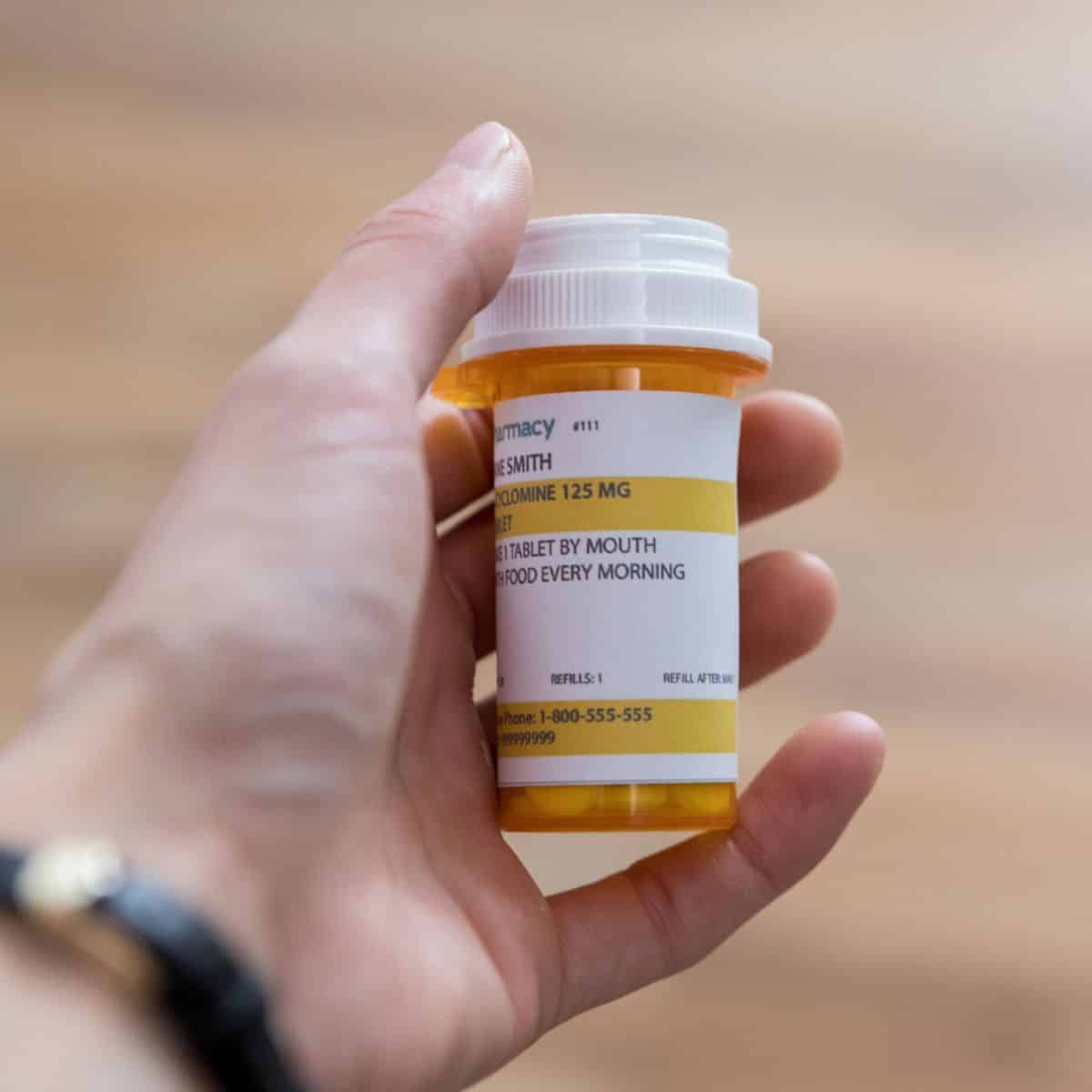Vivarin vs No Doz – detailed comparison:
No Doz
It is the brand name of caffeine tablets. Caffeine acts as a central nervous system stimulant. When it reaches the brain, the most noticeable effect is alertness.
Each tablet contains 200 mg of caffeine.
Additional inactive ingredients – carnauba wax, benzoic acid, FD&C blue # 1, cornstarch, light mineral oil, hypromellose, Polysorbate 20, microcrystalline cellulose, propylene glycol, povidone, sorbitan monolaurate, simethicone emulsion, sucrose, stearic acid, and titanium dioxide.
Uses
This medication is used to help you stay awake and alert when you are feeling tired or drowsy.
Note – it is not a substitute for sleep.
Dosage
Take 1/2 to 1 caplet not more often than every 4 hours. Do not give this medication to children under the age of 12 years.
Side Effects and Precautions
Common side effects may include:
- fussiness;
- restless behavior;
- excessive crying;
- loss of appetite;
- skin rash.
Less common side effects may include:
- weakness;
- sweating or shivering;
- stomach bloating;
- blood in the urine or stools;
- seizure (convulsions);
- diarrhea;
- vomiting;
- feeding problems;
- drowsiness.
Bone Loss
According to research, high caffeine intake may accelerate bone loss. For instance, one 2015 study concluded that postmenopausal women who intake more than 300 mg a day of caffeine lost more bone in the spine than women who didn’t consume any caffeine.
Precautions
Before using this stimulant, talk to your healthcare provider about your medical history, especially:
- mental/mood disorders;
- stomach/intestinal ulcers;
- high blood pressure;
- recent heart attack;
- allergy to any type of medication;
- irregular heart rhythm.
Pregnancy & Breastfeeding

Caffeine is excreted into breast milk and may cause side effects in your breastfeeding infant.
Also, if you are pregnant, avoid using this medication since caffeine crosses the placenta to your baby and negatively affects him.
Drug Interactions
It may negatively interact with other medications, especially:
- codeine;
- amoxicillin;
- Lamictal (lamotrigine);
- modafinil;
- Adderall (amphetamine/dextroamphetamine);
- hydrocodone;
- phentermine;
- Benadryl (diphenhydramine);
- Singulair (montelukast);
- Advil (ibuprofen);
- gianvi;
- tramadol;
- Lexapro (escitalopram);
- Cymbalta (duloxetine);
- Vyvanse (lisdexamfetamine);
- Seroquel (quetiapine);
- Aspirin Low Strength;
- Xanax (alprazolam);
- Klonopin (clonazepam);
- ibuprofen;
- Zyrtec (cetirizine);
- Tylenol (acetaminophen);
- Wellbutrin XL (bupropion);
- creatine;
- oxycodone.
Alcohol

Avoid combining alcohol with caffeine since it can notably increase your risk of personal injury.
Vivarin
It is the brand name of caffeine capsules (200 mg). Caffeine acts as a stimulant of the nervous system by inhibiting the enzyme phosphodiesterase.
Uses
This medication is typically used to help you stay awake and alert when you are feeling tired or drowsy.
Dosage
The usual recommended dose is 1 capsule every 4 hours, as needed – no later than 6 hours before bedtime.
Note – the maximum recommended dose is 1600 mg per day.
Side Effects and Precautions
Common side effects may include:
- fussiness;
- restless behavior;
- loss of appetite;
- excessive crying;
- skin rash.
Less common side effects may include:
- weakness;
- sweating or shivering;
- blood in the urine or stools;
- seizure (convulsions);
- vomiting;
- feeding problems;
- diarrhea;
- stomach bloating;
- drowsiness.
Drug Interactions

It may negatively interact with other medications, especially:
- codeine;
- amoxicillin;
- modafinil;
- Adderall (amphetamine/dextroamphetamine);
- hydrocodone;
- Benadryl (diphenhydramine);
- Singulair (montelukast);
- Advil (ibuprofen);
- Lexapro (escitalopram);
- Cymbalta (duloxetine);
- Vyvanse (lisdexamfetamine);
- Aspirin Low Strength;
- Xanax (alprazolam);
- Klonopin (clonazepam);
- Zyrtec (cetirizine);
- Lamictal (lamotrigine);
- Tylenol (acetaminophen);
- creatine;
- Wellbutrin XL (bupropion);
- Seroquel (quetiapine);
- tramadol;
- ibuprofen;
- phentermine;
- oxycodone.
Pregnancy & Breastfeeding
Caffeine is excreted into breast milk and may cause side effects in your breastfeeding infant.
In addition, if you are pregnant, avoid using this medication since caffeine crosses the placenta to your baby and negatively affects him.
Bottom Line – No Doz vs Vivarin
Vivarin is a central nervous system stimulant that may be used to restore mental alertness. It works by stimulating the brain. Every capsule contains 200mg of caffeine.
No-Doz is a central nervous system stimulant that may be used to restore mental alertness. It works by stimulating the brain. Every capsule contains 200mg of caffeine.
In conclusion, both products contain the same active ingredient, but they have different inactive ingredients.
Although low-to-moderate doses of caffeine can increase alertness, larger amounts may lead to edginess and anxiety. In most cases, you shouldn’t have more than 400 mg of caffeine a day and even less if you are particularly sensitive to caffeine.
READ MORE: Vestura vs Gianvi – Comparison
7 Alternatives to Caffeine to Help You Stay Alert
#1 Water
Nothing beats a large glass of water in the morning. It is actually been scientifically proven that drinking a glass of water can make your brain react 15 percent faster.
#2 Apples

Apples contain a sufficient amount of natural sugars, minerals, and vitamins to keep you wide awake. You can either drink apple juice or eat the whole fruit to fight away drowsiness and sleepiness.
#3 Exercise
Regular physical exercise doesn’t just give you toned abs but has notable mental and performance-boosting benefits as well.
#4 Sunshine
Even when it is cold outside, the natural light refreshes the mind and body. Try to get outside for at least 20 minutes per day.
#5 Wheatgrass
Wheatgrass is known to be a natural energizer, plus, it provides essential minerals, vitamins, and nutrients.
#6 Take A Break
Studies have shown that taking regular breaks throughout the day can improve your productivity.
#7 Meditate
It’s been proven that visualization exercises can help bring you closer to achieving your goals and boost your mental alertness.
Image credit – Shutterstock
READ THIS NEXT: Tolnaftate vs Miconazole
References https://onlinelibrary.wiley.com/doi/full/10.1111/j.1467-3010.2007.00665.x https://www.health.harvard.edu/blog/caffeine-healthy-diet-may-boost-memory https://www.sciencedirect.com/science/article/pii/S0149763416300690
